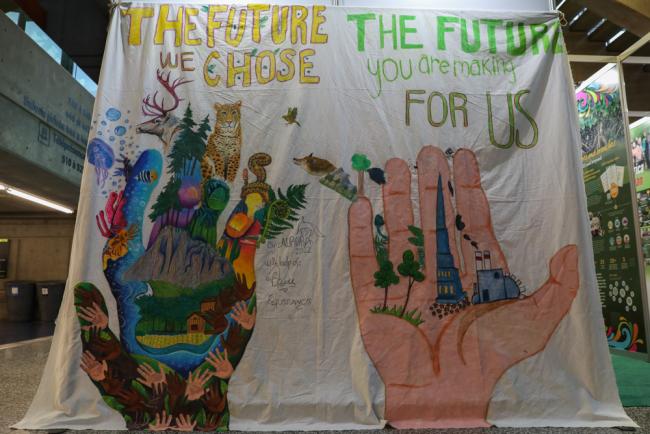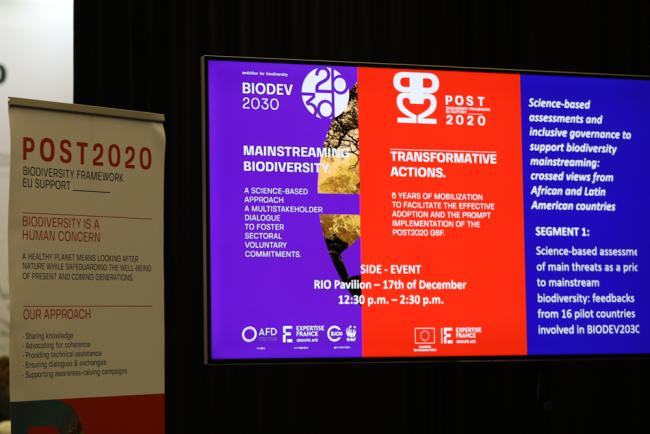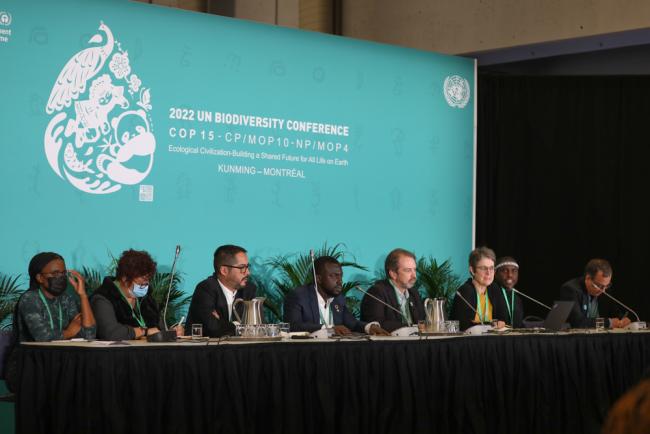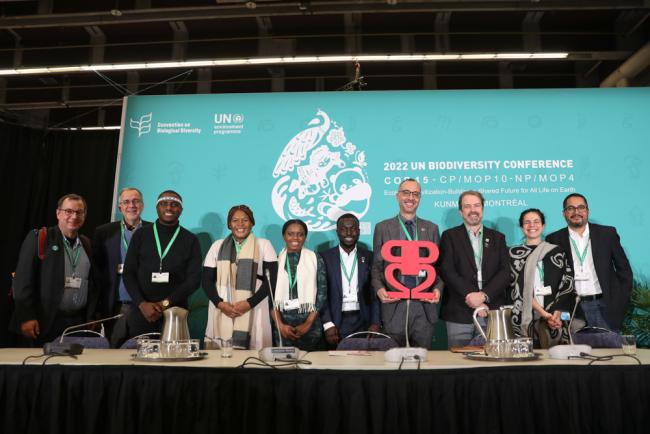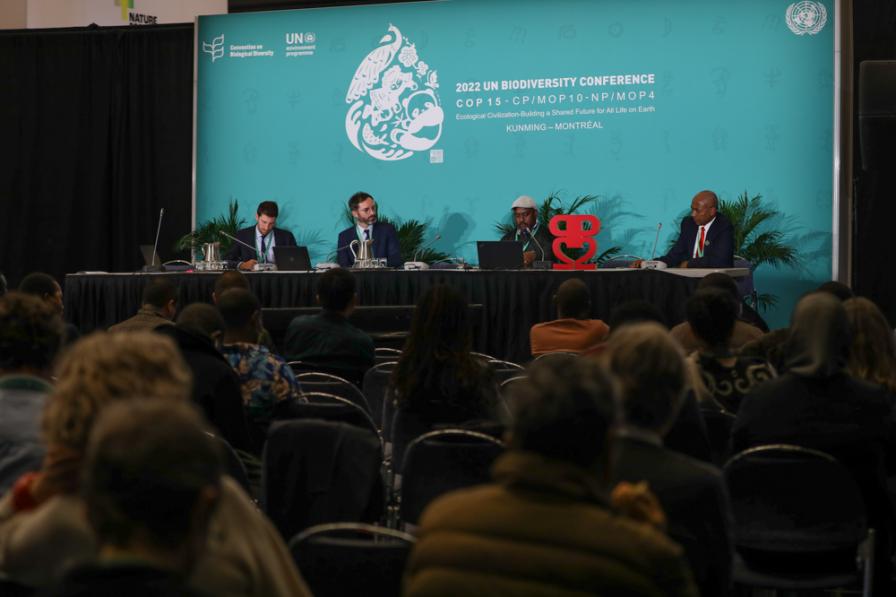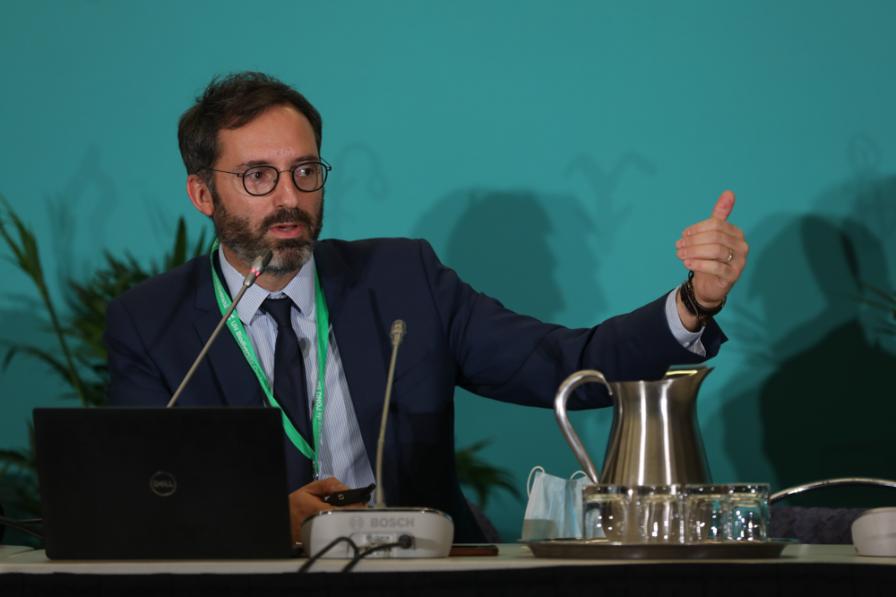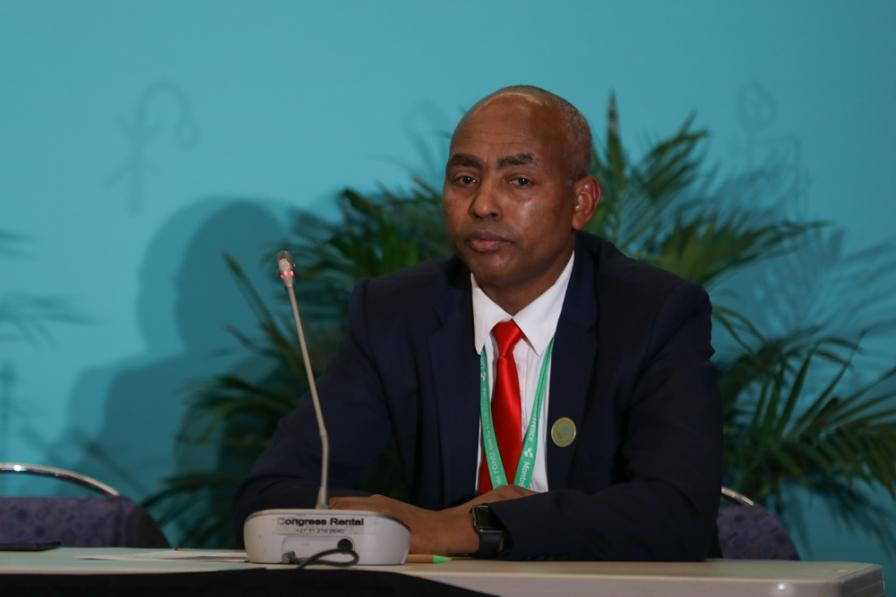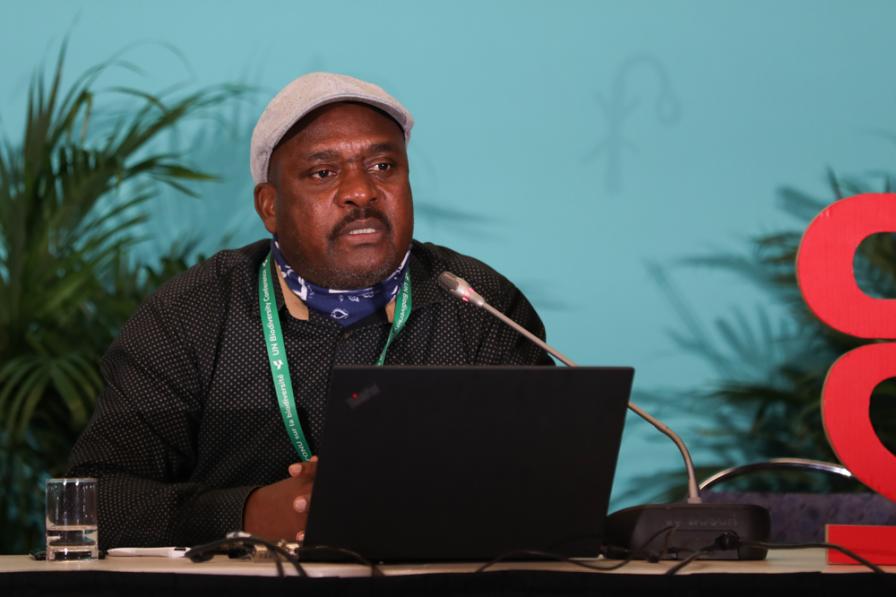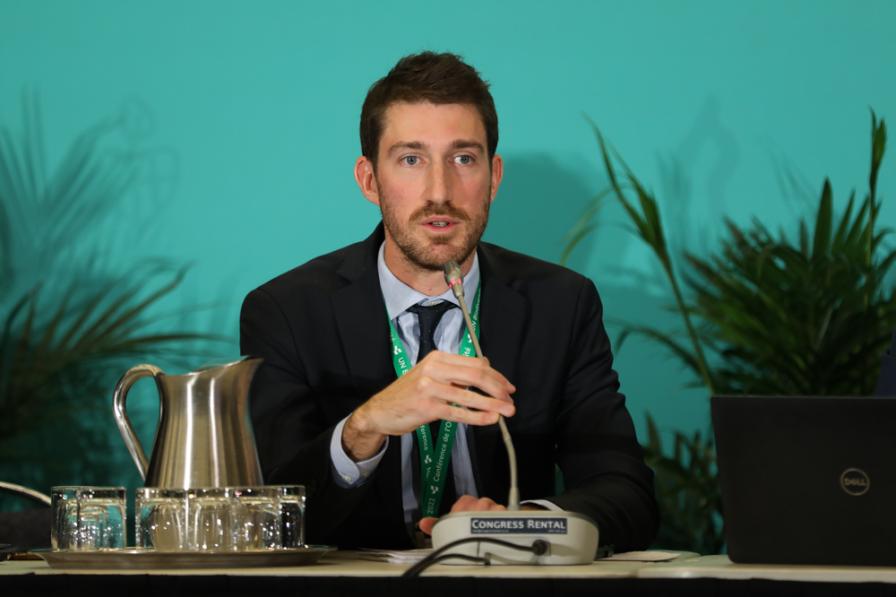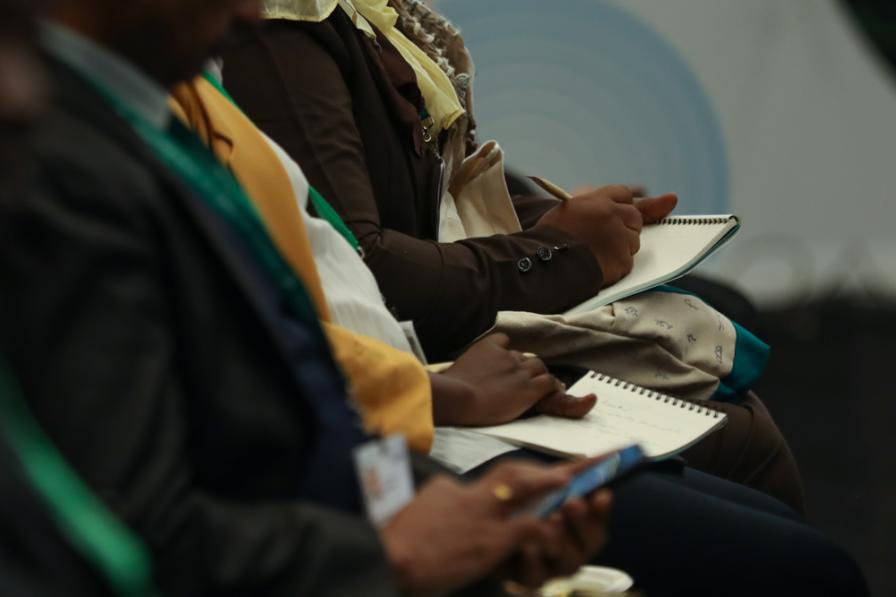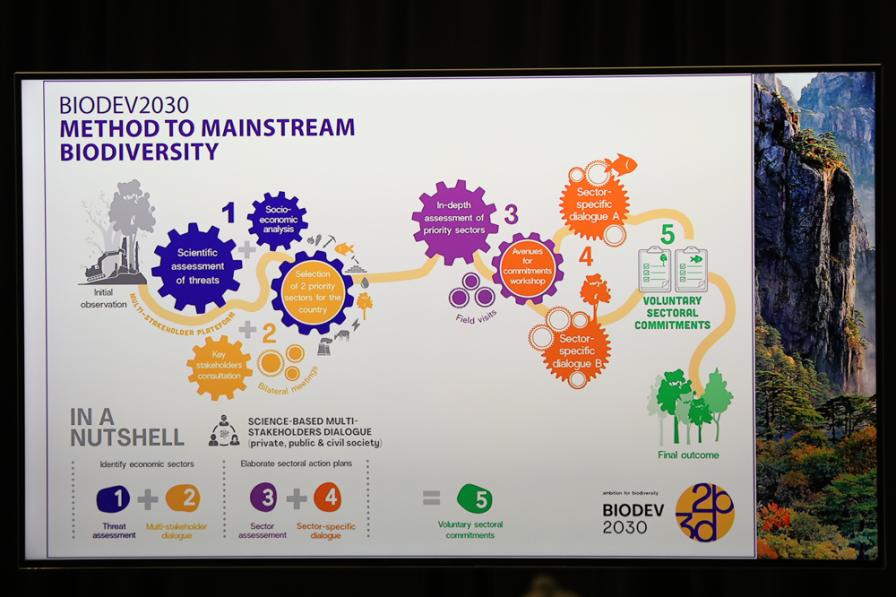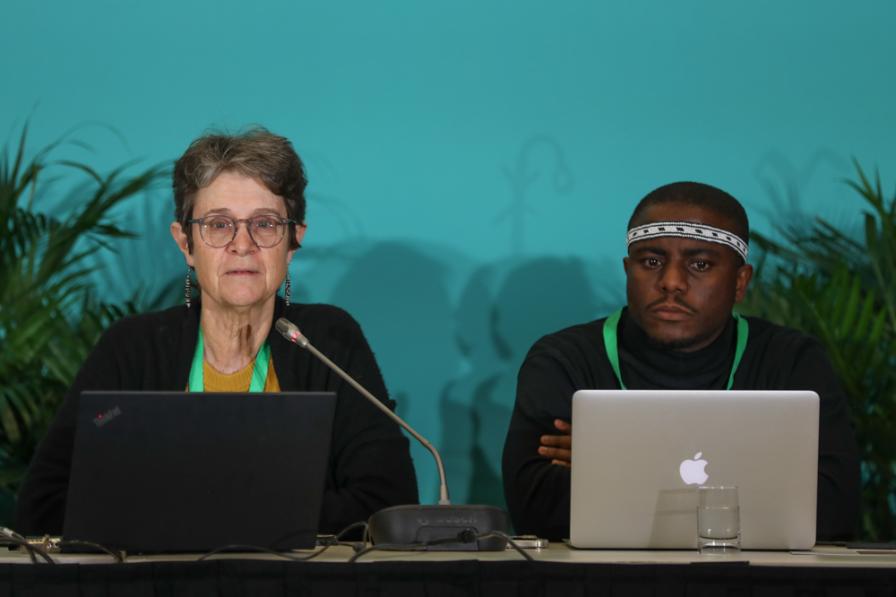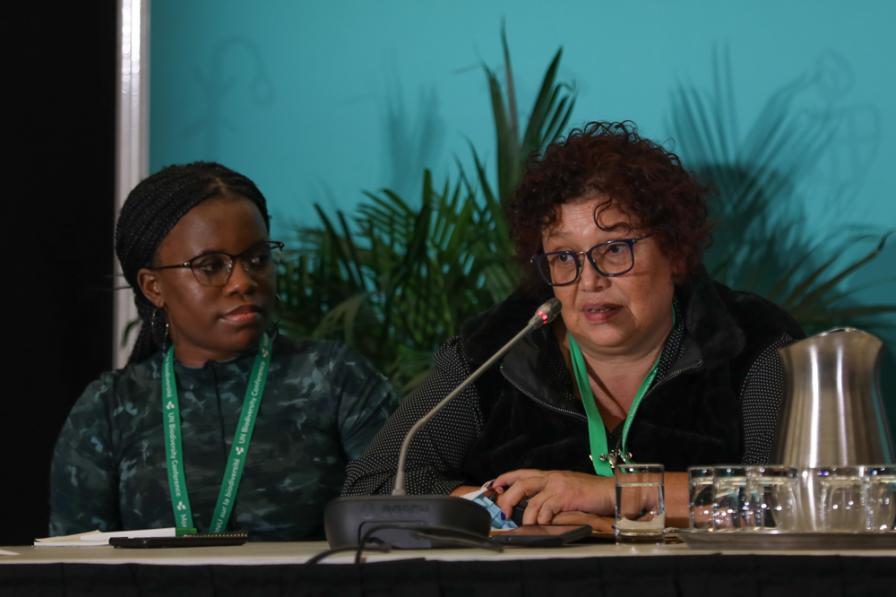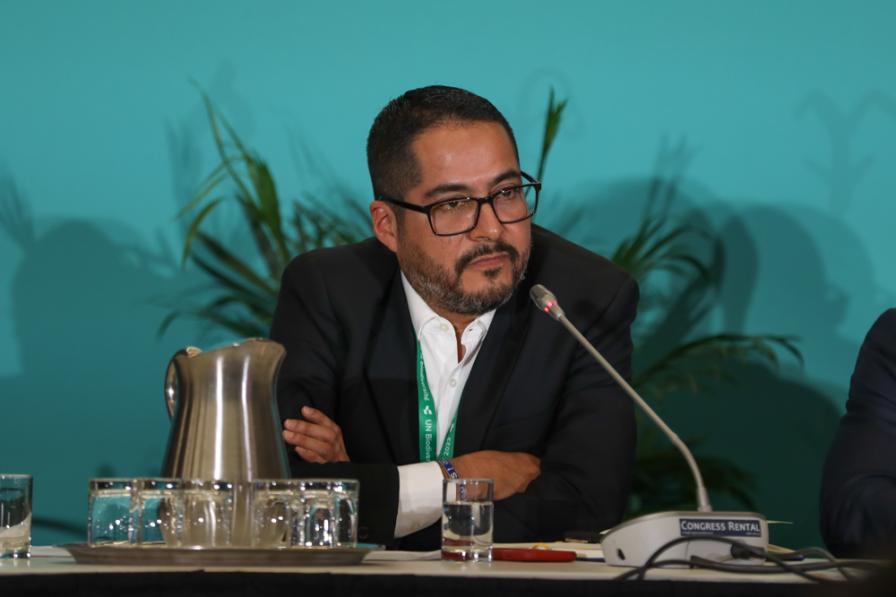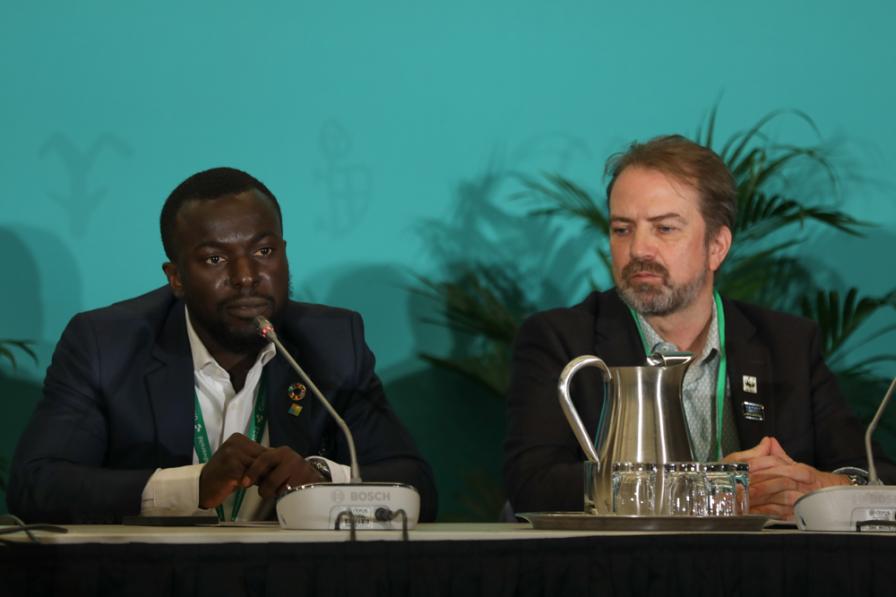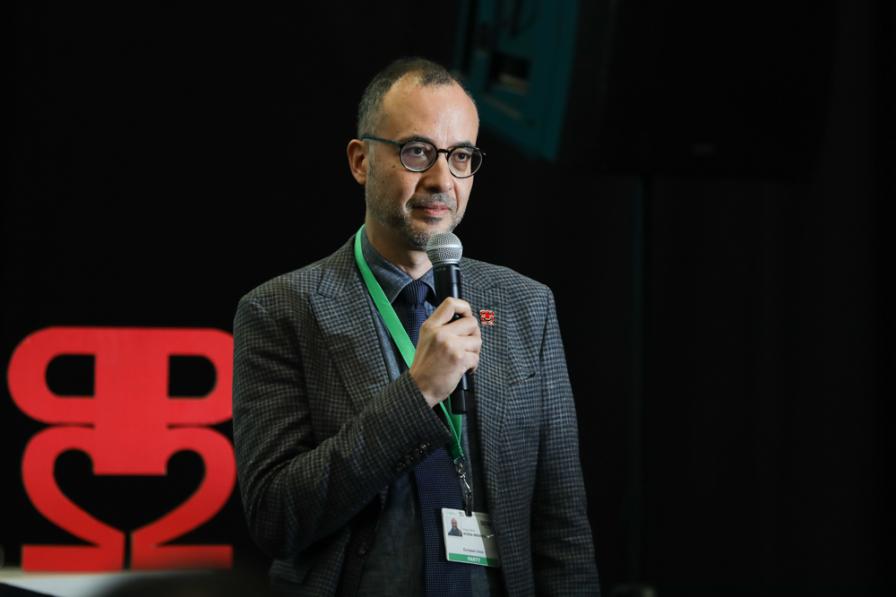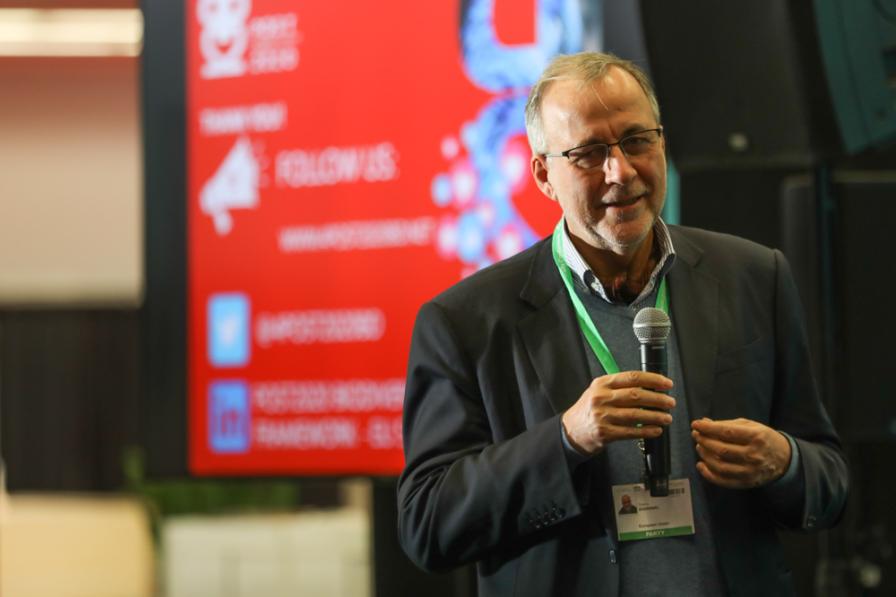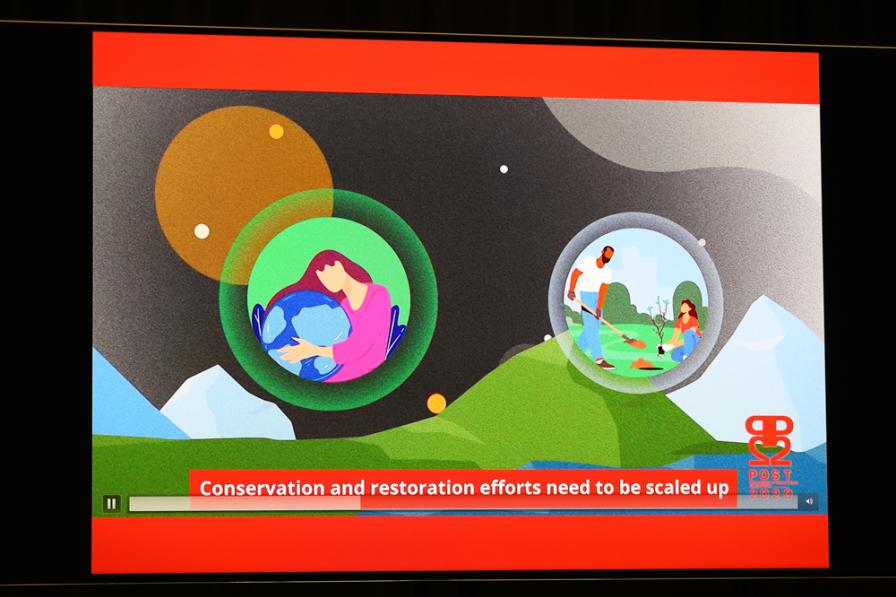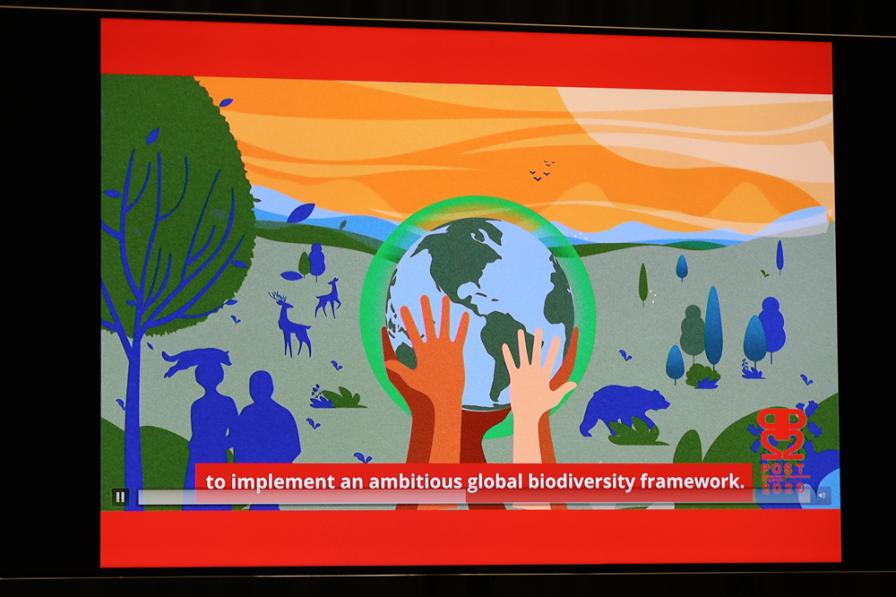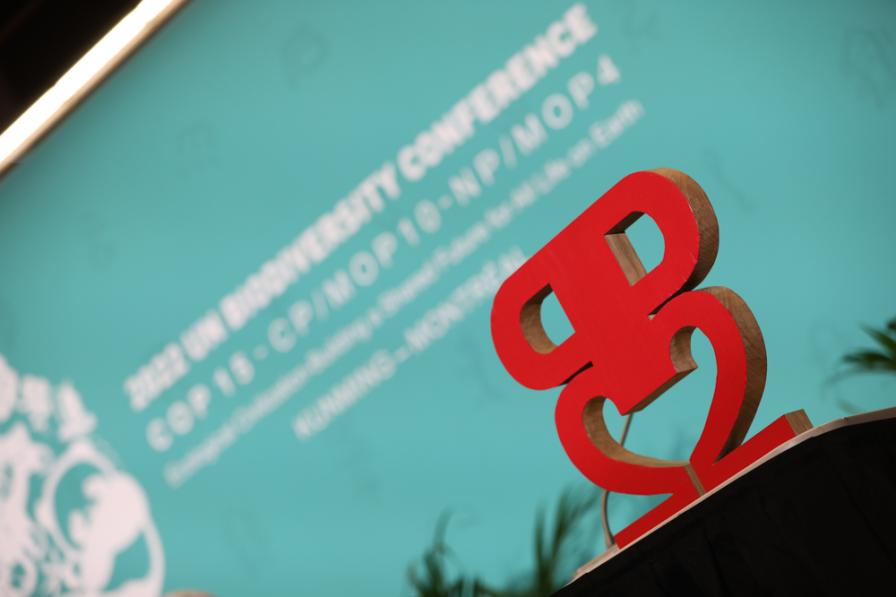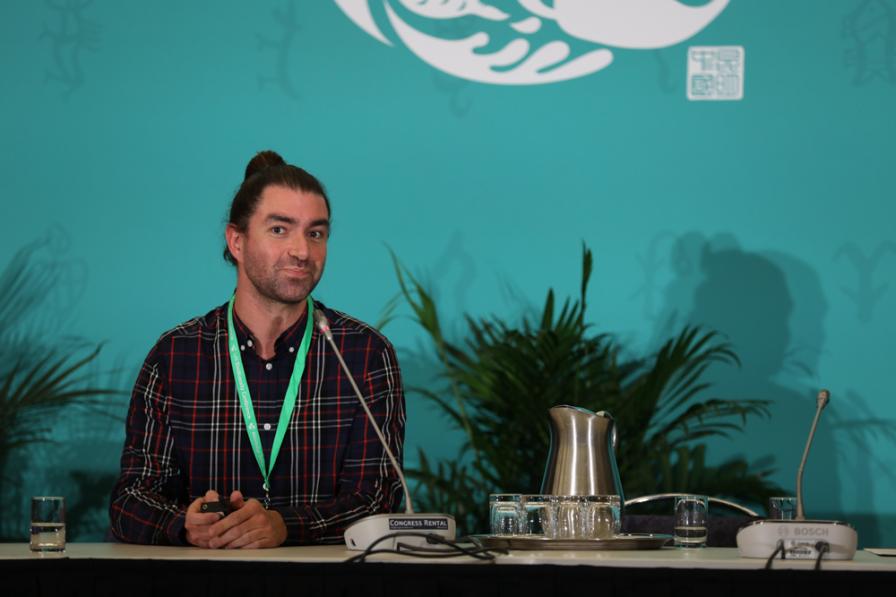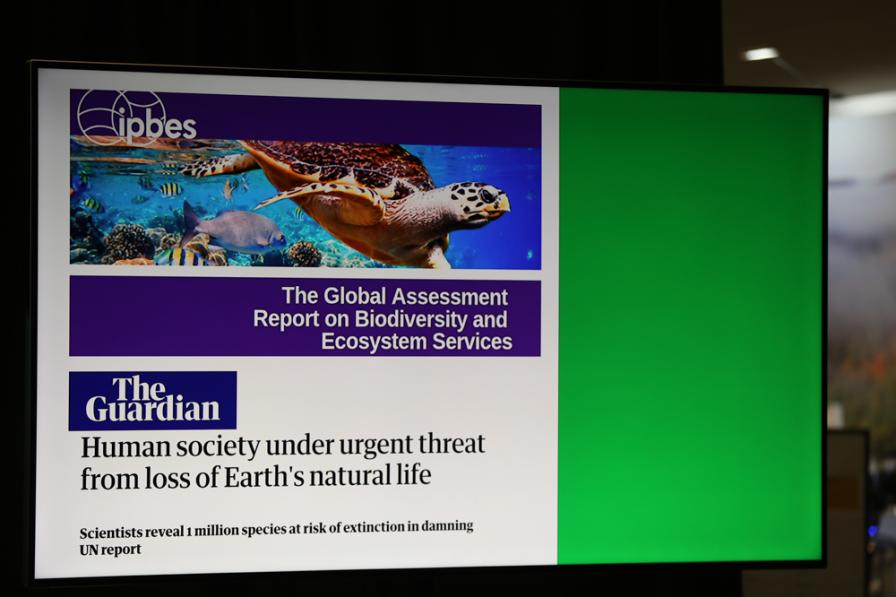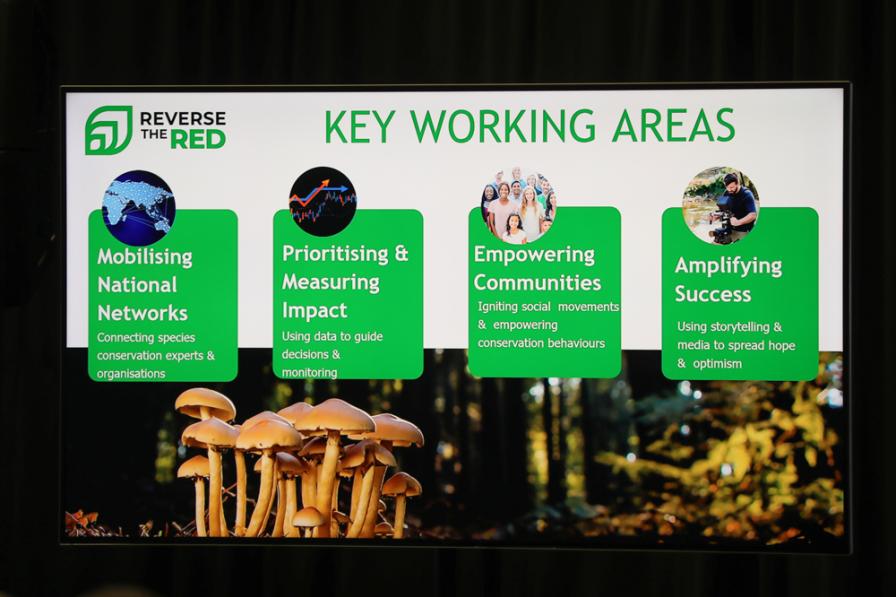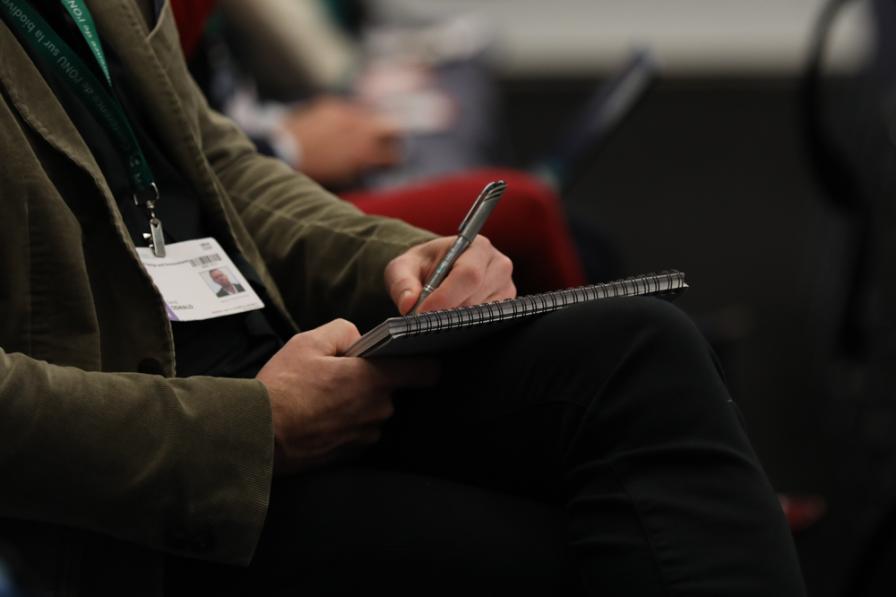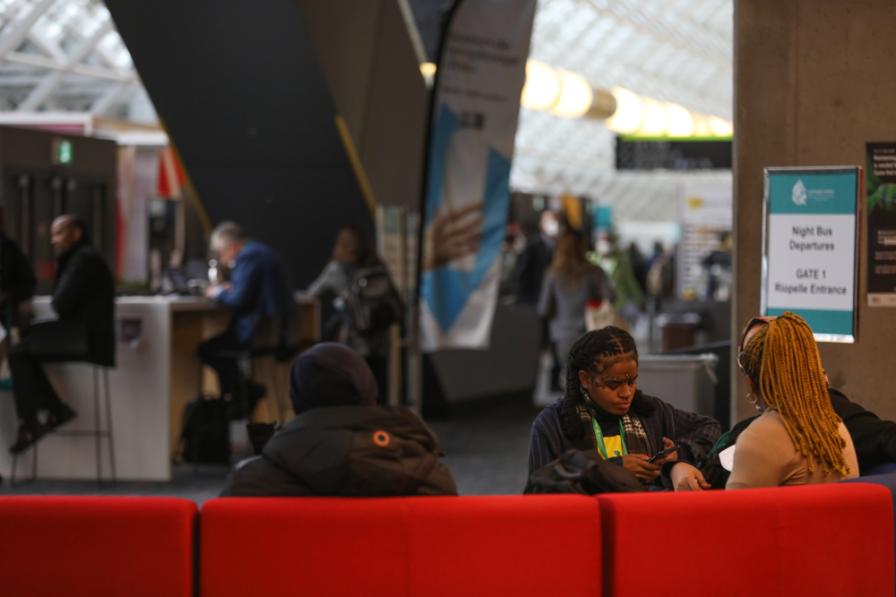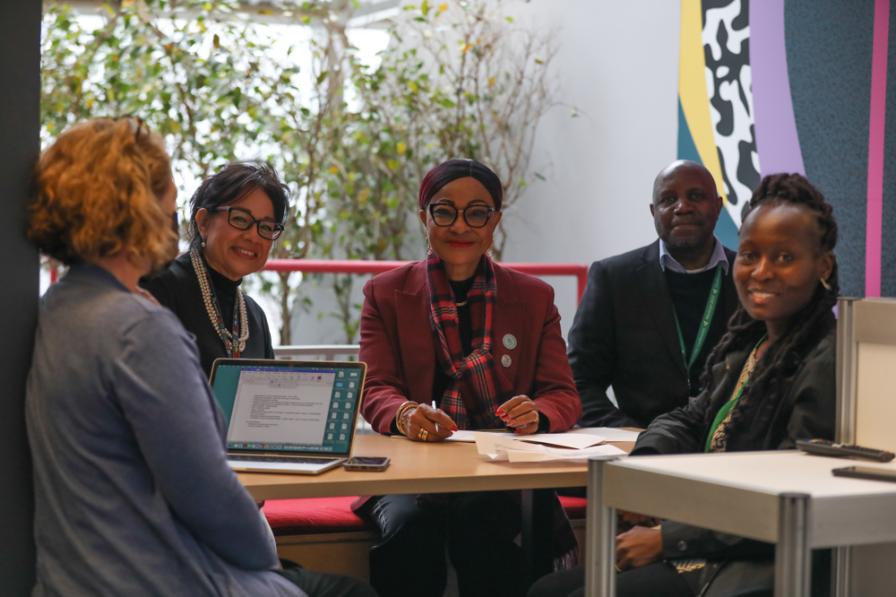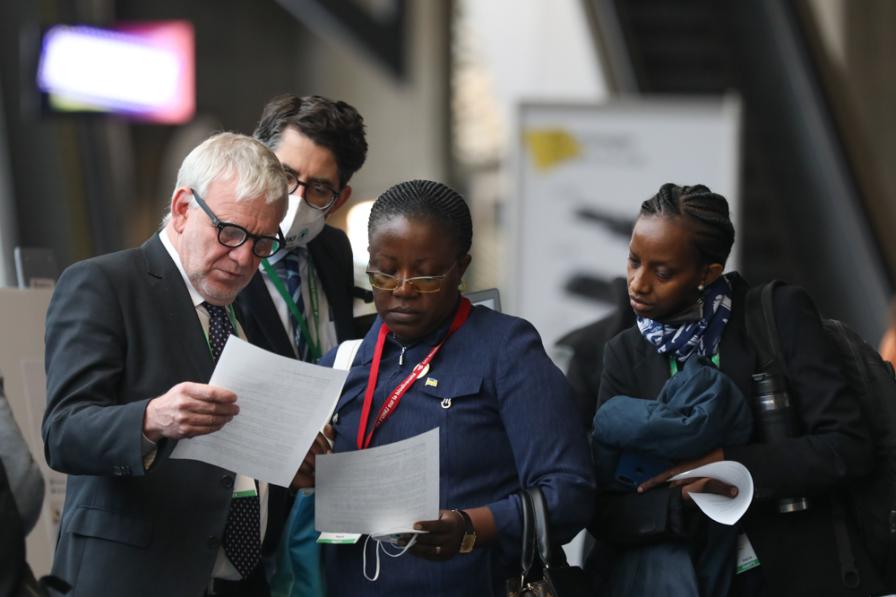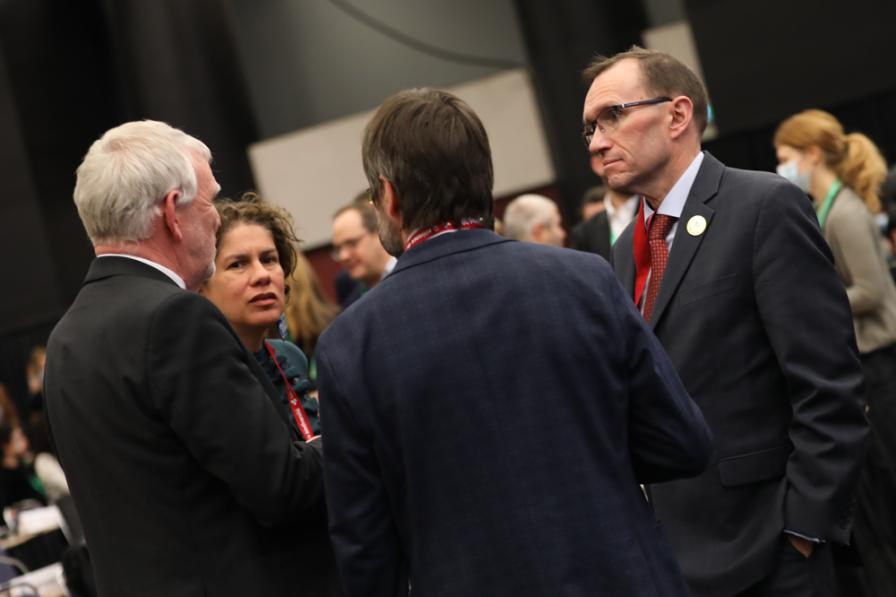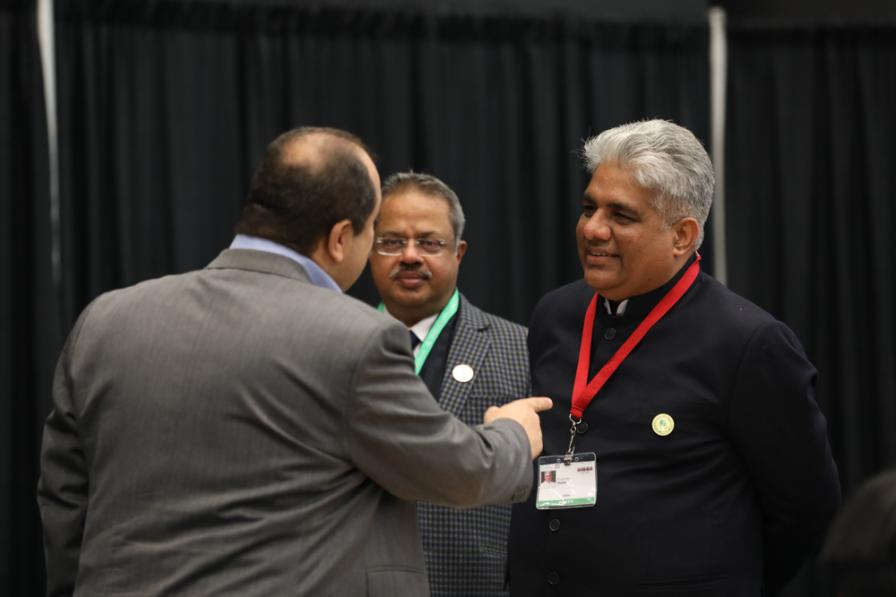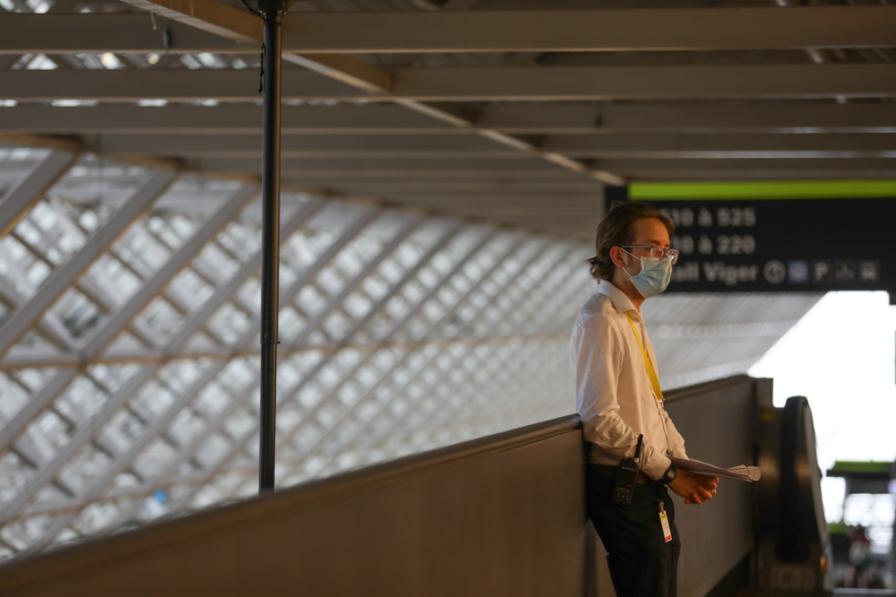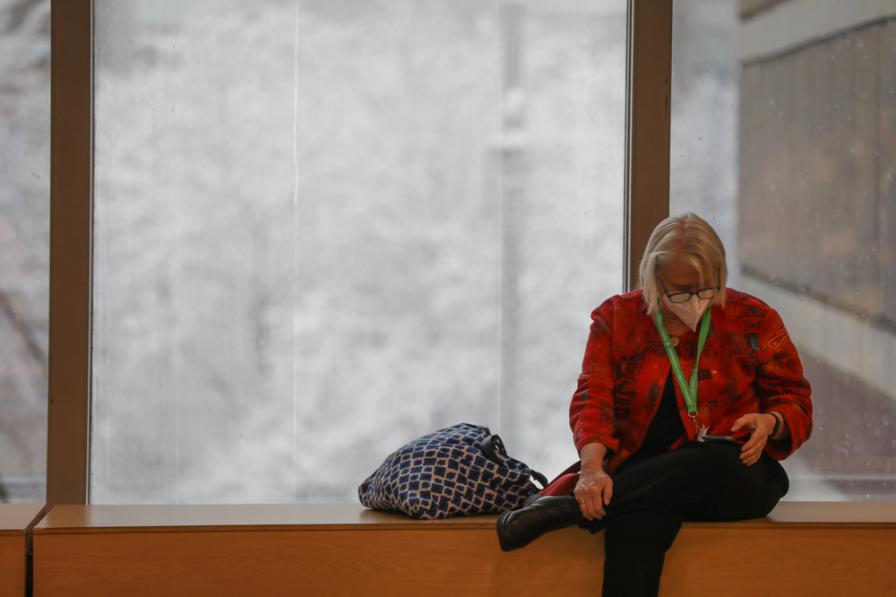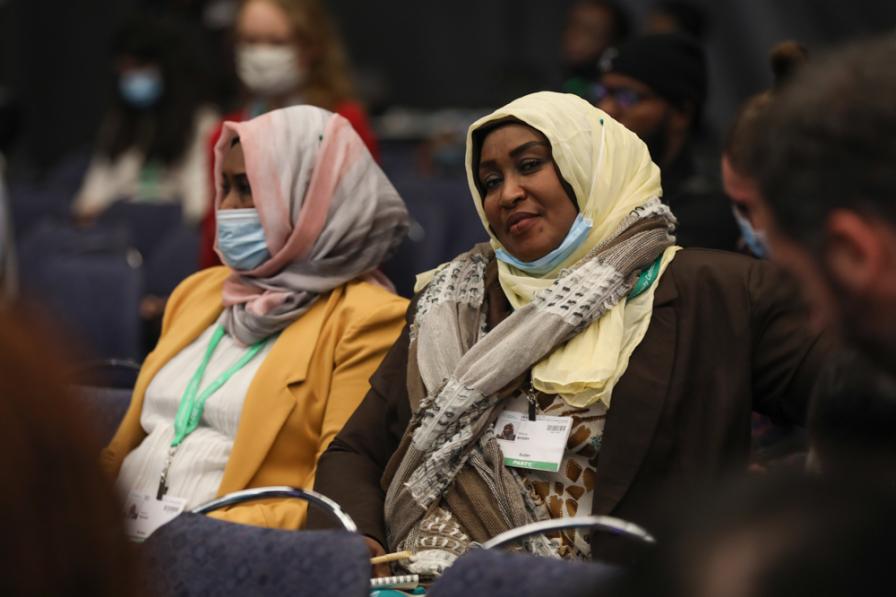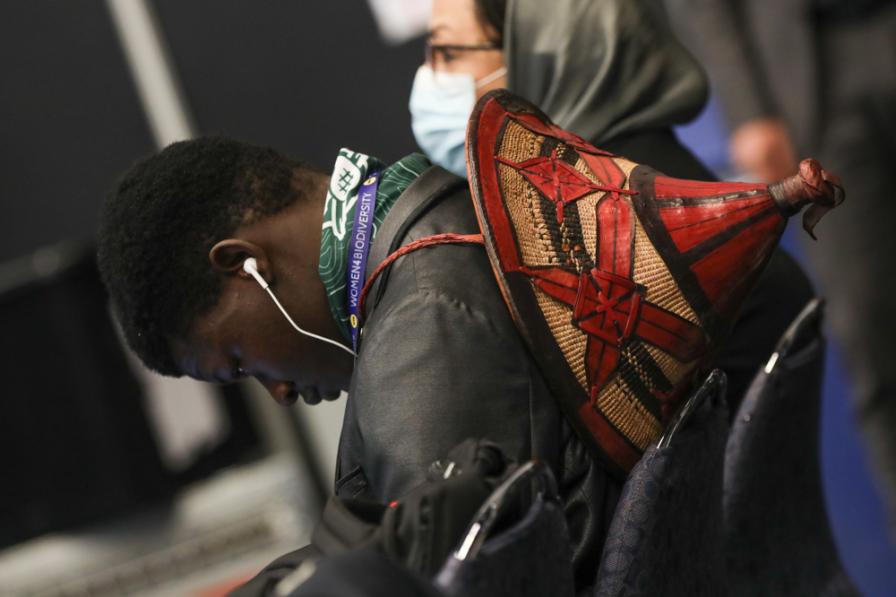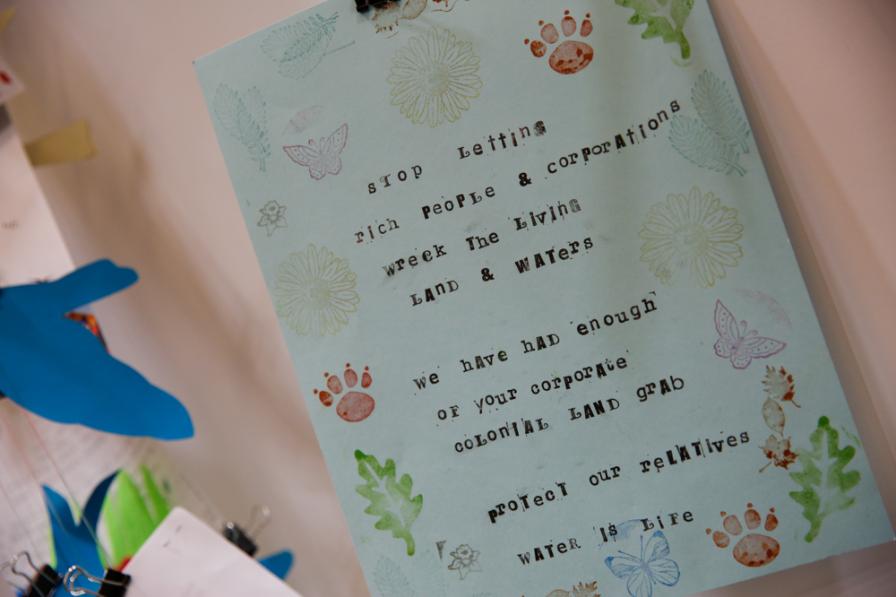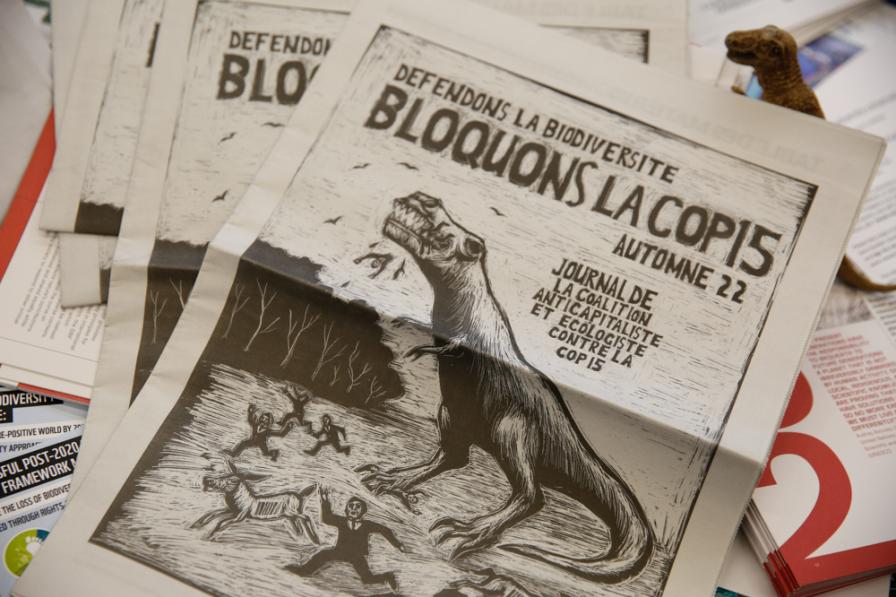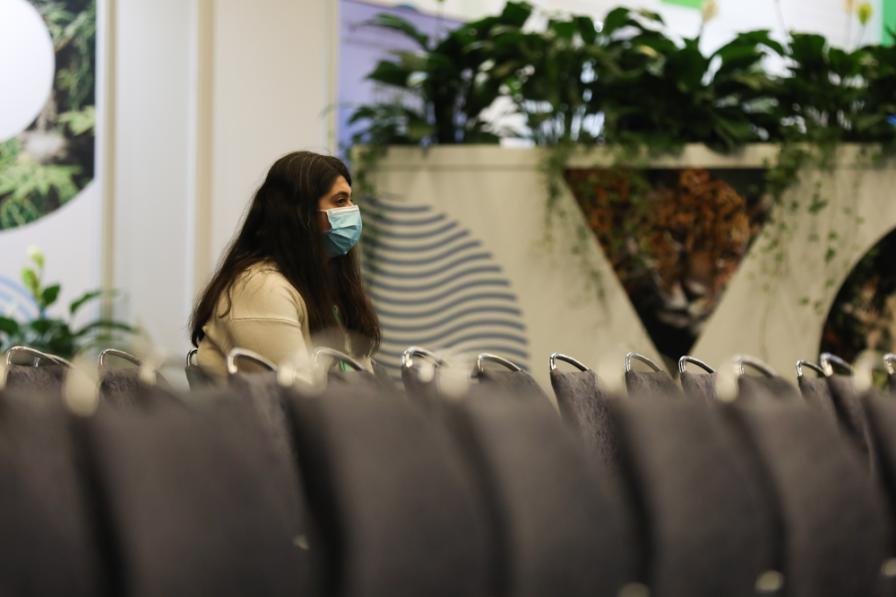Summary
Organizers presented different initiatives that have helped advance dialogue and action on biodiversity loss through a concerted effort of multi-stakeholder engagement, quantifiable measures of success, and science-based and other innovative approaches.
On the fifth day of the Rio Conventions Pavilion at COP 15, organizers presented different initiatives that have helped advance dialogue and action on biodiversity loss through a concerted effort of multi-stakeholder engagement, quantifiable measures of success, and science-based and other innovative approaches.
The session speakers and audience participation underlined the importance of South-South cooperation to share best practices, limitations and lessons learned in order to realize the full potential of the post-2020 global biodiversity framework (GBF), climate ambitions and the UN 2030 Agenda.
Science-based assessment of main threats as a prior to mainstream biodiversity: feedbacks from 16 pilot countries involved in BIODEV2030
The first session of the day focused on the BIODEV2030 project, an experimental approach implemented in 16 pilot countries with multiple socioeconomic, environmental and geographic contexts. Presentations and speakers helped demonstrate through specific country examples how BIODEV2030 harnesses scientific assessments of threats to biodiversity in the national context to inform strategies and prioritization of actions.
Speakers highlighted how this initiative has encouraged stronger linkages between government, local actors, and private sector to identify voluntary commitments and where biodiversity gaps are most prevalent.
Antonin Vergez, IUCN, highlighted his organization’s publication, “Mainstreaming biodiversity into priority economic sectors - Lessons from the assessment of main threats in 16 BIODEV2030 pilot countries” noting the report details the strengths, complementarities, and limitations of methods adopted by each country in this project.
Melesse Maryo, Ethiopia, provided an overview of his country’s experience in adopting the BIODEV2030 project praising it as a an opportunity to establish a learning forum between private sector, government and local communities to harness the potential of voluntary commitments.
Luis Fortunato Lifanissa, Mozambique, presented on his country’s experience with BIODEV2030 also applauding its ability to bring together a wide set of stakeholders for effective results.
The need for more inclusive governance to achieve transformative change
The second panel introduced the “POST2020 Biodiversity Framework EU support project” which is focused on transformative change and the whole-of-society approach as key element for synergies in mainstreaming biodiversity. Following a short video screening, moderator Hugo Rivera Mendoza invited panelists to share experiences from their respective constituencies on how the project contributed to fostering more inclusive governance.
Gavin Edwards, World Wildlife Fund International, reflected on the growth and deepening of the biodiversity movement over the last years, and called for replicating engagement on the GBF at the national implementation level.
Ingrid Coetzee, Local Governments for Sustainability (ICLEI), spoke about the journey towards the Edinburgh Declaration on GBF and the “cities with nature” and “regions with nature” platforms, emphasizing that the projects’ support was crucial in the mobilization of subnational and local governments in the GBF.
Eugenia Arguedas Montezuma, Costa Rica, reported how the multi-stakeholder consultation processes in the context of “Costa Rica + Natura” project contributed to forming her country’s position on the GBF.
Keletso Kalebe, Global Youth Biodiversity Network South Africa (GYBN ZA), shared how youth engagement in the GBF was facilitated in South Africa and across the continent.
Osiphesona Ngcanga, GYBN ZA, highlighted the importance of inclusive governance considering all facets of personal identity, addressing gender equality, improving access to resources and meaningful engagement of youth in decision-making.
Michael Ofosuhene-Wise, Business for Nature, reiterated the rising momentum for nature in the private sector and noted that “it is going to take all of us” to tackle this issue. He encouraged the sharing of knowledge and examples of concrete action, since “action begets action”.
Victor Alvarado, the UN Economic Commission for Latin America and the Caribbean, elaborated on the consultation process leading to a regional workshop with CBD negotiators and other stakeholders to discuss key issues related to the GBF’s draft, and reflected on ways that the UN Economic Commissions can provide added value to mainstream biodiversity.
Paul Dale, Sao Paulo State, Brazil, drew attention to the fact that it’s only eight years to 2030. He presented the WorldBio process as an approach to find new and transformative ways for implementation across sectors, suggesting meeting every two years between the CBD COPs.
From the audience, representatives of Uganda shared their experiences and called for South-South cooperation, stating, “we live in the same tropics, we have the same problems”.
In closing, Thierry Dudermel, EU, highlighted the challenge ahead, stressing the involvement of all sectors was key to implementing the GBF, and emphasized the EU’s continued commitment to this process.
A Strategy of Hope: Mobilizing national networks and empowering communities to reverse biodiversity loss trends
In the final session of the day for the Pavilion, Martín Zordan, World Association of Zoos and Aquariums (WAZA), presented Reverse the Red, a global movement that aims to build strategic cooperation and action to ensure the survival of wild species and ecosystems.
He explained how the initiative helps develop collaborative models and tools to better support government agencies in setting targets, planning and delivering on GBF. He added this is done by mobilizing national networks, prioritizing the measuring of impacts, empowering communities, and amplifying success.
Reverse the Red also adopts a multi-stakeholder approach by developing national partnerships with a diverse range of actors for effective coordination and impactful results.
The session ended by noting that Reverse the Red has delivered over 20 webinars since November 2020 on a series of topics and poised to continue this momentum.
The Earth Negotiations Bulletin is covering the Rio Conventions Pavilion at COP 15 events from 13-18 December.
For more information: Rio Conventions Pavilion
All ENB photos are free to use with attribution. For the CBD COP 15 Rio Conventions Pavilion, please use: Photo by IISD/ENB | Kiara Worth.
To receive free coverage of global environmental events delivered to your inbox, subscribe to the ENB Update newsletter.

